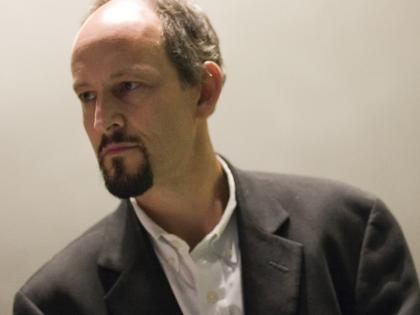Stymied in its attempts to resolve certain student peer complaintsmost seriously those alleging sexual assaultthe College's Administrative Board sought, and the Faculty of Arts and Sciences (FAS) on May 7 granted, a new procedure for handling such disputes. Rather than ending the matter, the legislation set off a sharp discussion among faculty members and students (organized as the Coalition Against Sexual Violence) about what Harvard does, and ought to do, to prevent such abuses and respond to them when they occur. As a result, a new University-wide committee was commissioned May 21 to review the problem and recommend better policies.
Dean of Harvard College Harry R. Lewis signaled the procedural change in January, in his annual report on undergraduate life during the prior academic year. The Administrative Board, which he chairs, had been "asked to investigate a sharply increased number of complaints of sexual assault." (There were seven in 2000-2001, compared to 13 during the prior decade.) Several cases involved neither police nor courts, leaving the board to gather "detailed testimony about sexual acts and their context." That usually meant relying on "he-said-she-said" accounts where the principals "more often than not had been drinking and admit to having only vague or partial recollections of what happened." Delays in presenting the allegations further attenuated the evidentiary trail. Based on its experience during 2000-2001, Lewis concluded, "it is predictable in advance that the Board will likely be unable" to resolve cases under these circumstances, resulting in fruitless investigations that are "needlessly difficult for the students involved." (Of the seven cases presented, the board could reach a definitive conclusion in only one.)
Searching for a way to sort out unprovable cases from those it could resolve, the board sought advice from an ad hoc faculty committee appointed by FAS dean Jeremy R. Knowles. Its membersPeter T. Ellison, dean of the Graduate School of Arts and Sciences; Kathleen M. Coleman, professor of Latin; and William A. Graham Jr., Albertson professor of Middle Eastern studies and master of Currier Housealso reported in January. Drawing on their own experiences as past Administrative Board members and their examination of recent cases, the committee distinguished adversarial legal proceedings for the prosecution of rape and sexual assault from the College's internal disciplinary processes. It also noted a third possibilityprofessional mediationwhich might be used to achieve "an acknowledgment of responsibility and a real change in behavior in a serious dispute" for at least some peer cases.
In dealing with peer disputeswhere the board essentially weighs conflicting statements presented by two undergraduatesthe committee recommended that procedure be changed to a presumption that it "ordinarily will not consider a case unless the allegations presented by the complaining student are supported by sufficient independent corroboration which, if true, would likely permit the Board to decide the case." To that end, before formally initiating a charge, the Board would use a screening process to gather evidence, such as e-mails or photographs, and lists of witnesses. Based on these submissions from both sides, the dean and the Board would then determine whether to pursue the case. The committee made clear that it in no way changed the substance of the faculty's 1993 policy on rape, sexual assault, and other sexual misconduct.
It was this procedural recommendation that Lewis presented to the faculty May 7, when it was quickly adopted. The New York Times reported the new procedure as a kind of "legal triage" for sorting out date-rape cases, bringing College disciplinary procedure more in line with the rules obtaining in courts.
Within days, on campus, it became something else. Some faculty members said they had not been fully informed on the substance of the issue before their vote. Students protested that the College was callously turning its back on the victims of sexual assault, and making it harder to seek redress. Radcliffe professor of the history of science Katharine Park (whose unsettling recollection of misogyny at Harvard during her undergraduate years, 1968-1972, is reprinted in The Women's Guide to Harvard, published last winter), put the matter back on the faculty's agenda for its May 21 meeting. Her aim, she explained, was to explore alternatives to criminal prosecution of sexual-misconduct cases, "the quality of education and advising" offered students concerning rape and sexual assault, and preventive measures.
And then the brewing confrontation was defused. Lewis apologized for failing to provide better information before the May 7 vote, emphasizing that the issue had been framed as a change in procedure, not in the faculty's definition of sexual misconduct or its determination to punish abuses. Reflecting community concerns, and his own, Lewis announced formation of a new committee, charged with reviewing and making recommendations to the dean of the College and the University provost on "all institutional support services for victims of sexual violence and all preventive, educational, and outreach programs to reduce the incidence of sexual violence in Harvard College." Its chair is the School of Public Health's Jennifer Leaningprofessor of international health, a founder of Physicians for Human Rights, and herself a 1967 Radcliffe alumnawho has investigated humanitarian disasters and crises worldwide. Park said she would serve on the committee, and thanked administrators, Lewis, and "most of all the students" for bringing matters to "this hopeful place."
With that, conditions were set for a comprehensive analysis of student sexual misconduct at Harvardeven as a civil-rights complaint against the new procedure was filed in June. Beyond a review of Administrative Board procedures or even the wider recommendations from the ad hoc committee (concerning the counsel students are given when sexual abuse is alleged, and alternate paths to pursuing charges), the new study will aim, ultimately, to influence the fundamental issues of student behavior and responsibility within the University community.






